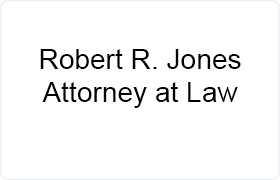 Seabrook Criminal Lawyers, Texas
Seabrook Criminal Lawyers, Texas
Sponsored Law Firm
-
 x
x

Click For More Info:
-
Robert R. Jones Attorney at Law
3526 E. FM 528 Suite 204 Friendswood, TX 77546» view mapCriminal Defense Expert Representation for Reasonable Rates
If you need representation, call me 24/7.
800-883-8760
Sponsored Lawyers
1-10 of 35 matches
DUI-DWI, Car Accident, Family Law, Mass Torts, Personal Injury
Mr. Kennedy is a native Houstonian with more than 13 years of trial and appellate experience. He built a practice that focused on family, criminal, personal injury and probate law. He has tried over 50 cases, both criminal and civil, to a jury. Mr. Kennedy believes that there are no one-size-fits-all solutions because everyone’s legal issue is unique and personal. He provides vigorous representation for his clients with an eye toward finding creative solutions to complex problems. Mr. Kennedy has experience representing clients in Harris, Galveston, Brazoria, Fort Bend, Montgomery and Waller counties. Mr. Kennedy was admitted to the State Bar of Texas in 2005 and is licensed to practice in all state courts.
(more)


 Robert Jones Friendswood, TX
Robert Jones Friendswood, TX AboutRobert R. Jones Attorney at Law
AboutRobert R. Jones Attorney at Law Practice AreasSpecializations
Practice AreasSpecializations

